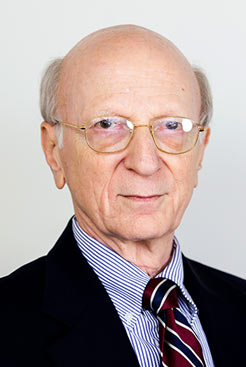 |
“Some people believe that the strike in Syria will convince Xi Jinping of President Trump’s willingness to use force in Korea. While any president would have to consider use of force if the U.S. is directly threatened, and China’s greater sense of urgency about Korea reveals a recognition of that risk in East Asia, the Syrian strike has little if any bearing on the Korean situation. Syria may have stolen the headlines for the moment, but unless the U.S. somehow gets itself into much greater on-the-ground involvement there, the importance of the relationship with China, and of U.S. interests in East Asia writ large, will keep a focus on that region.”
— Alan Romberg, Distinguished Fellow and Director of the East Asia Program, Stimson Center
|

Stimson Statements: Analyzing the US Strike on Syria
In
In light of U.S. President Donald J. Trump launching a missile strike in Syria in retaliation for a chemical attack that killed scores of civilians this week, experts from the nonpartisan Stimson Center released the following statements:
“Last night’s strike on military targets in Syria sent a clear message about President Trump’s intention to punish the Syrian regime for attacking its own people. The attack also increased the risk of a direct confrontation with Russia, as both countries move ships into the Eastern Mediterranean and Russia works to strengthen Assad’s air defenses. The U.S. must carefully avoid spiraling toward escalation with Russian forces, marrying considered military action with direct diplomacy. Putin should be embarrassed by Assad’s actions, and this demonstration of U.S. military force may provide Russia with an opportunity to leverage the threat of further strikes to rein in even more reckless behavior by Syria. ”
— Brian Finlay, President and CEO, Stimson Center
“The U.S. cannot afford to act impulsively in one of the world’s most intractable and deadly conflicts. Assad’s attacks on civilians are deliberate and central to his goals. The U.S. missile strikes might conceivably deter further chemical weapons attacks, but conventional attacks on civilians will continue, backed by Russia. Does the Trump administration want to send the message that it will tolerate massacres by dictators of civilians as long as they use bombs instead of chlorine or sarin? And what will it do if Assad does use chemical weapons again? We should be very concerned about a White House that plunges recklessly and without a clear strategy into Syria. The consequences could be terrible for Syrian civilians and for U.S. national security.”
— Aditi Gorur, Director of the Protecting Civilians in Conflict Program, Stimson Center
“The cruise missile strikes were an appropriate and proportionate response to the Syrian military’s use of chemical weapons and the Russian government’s complicity or unwillingness to enforce its agreement with the Obama administration to prevent further Syrian attacks in the future. A pattern was emerging of repeated use by Assad’s forces of chemical weapons, and use of more lethal agents. This pattern demanded a response.”
— Michael Krepon, Co-founder, Stimson Center
“The limited attack on a Syrian airbase reflects several of President Trump’s leadership characteristics. It demonstrates decisiveness and his belief in the deterrent effect of American military power. The decision was taken quickly, as a visceral reaction to the horrors of chemical weapons use, and will provide a useful rhetorical counterpoint to the Obama administration’s approach to the Syria crisis. It is striking that the administration has shifted its views on Russia’s role, accusing Moscow of complicity in Assad’s war crimes. In general, this will be seen as a success, perhaps short-lived, for the Trump team’s national security strategy moving forward.”
— Ellen Laipson, Distinguished Fellow and President Emeritus, Stimson Center
“Some people believe that the strike in Syria will convince Xi Jinping of President Trump’s willingness to use force in Korea. While any president would have to consider use of force if the U.S. is directly threatened, and China’s greater sense of urgency about Korea reveals a recognition of that risk in East Asia, the Syrian strike has little if any bearing on the Korean situation. Syria may have stolen the headlines for the moment, but unless the U.S. somehow gets itself into much greater on-the-ground involvement there, the importance of the relationship with China, and of U.S. interests in East Asia writ large, will keep a focus on that region.”
— Alan Romberg, Distinguished Fellow and Director of the East Asia Program, Stimson Center
“The airstrike against Syria, whether intentionally or not, is a message to North Korea — when this administration says “all options are on the table,” they mean it. For China as well, it serves as a not-so-subtle message that the administration may be willing to consider this kind of limited strike against North Korea if China continues its current approach to North Korea.”
— Yuki Tatsumi, Director of the Japan Program, Stimson Center
Contact: Jim Baird; [email protected]; 202.478.3413
Photo credit: U.S. Government Work via Flickr